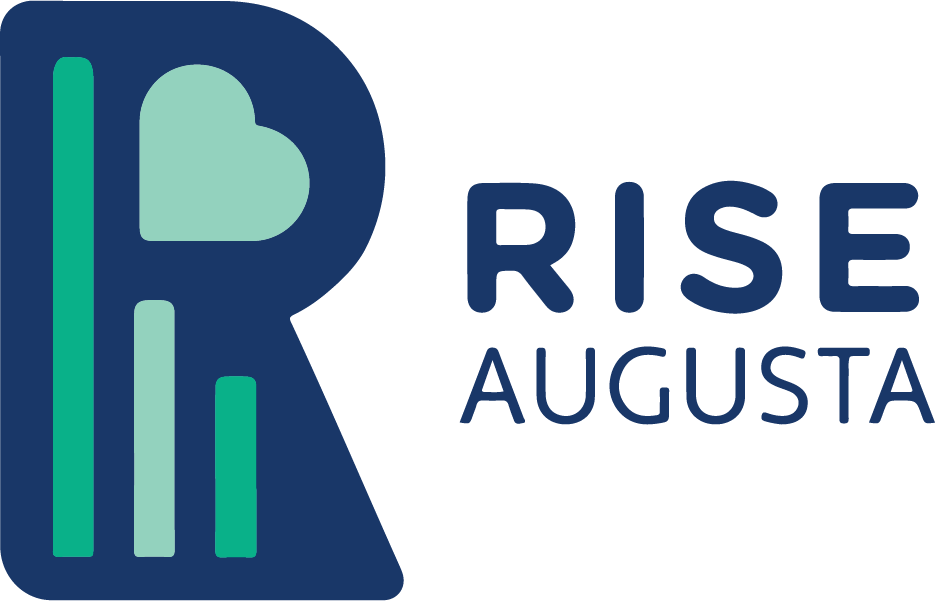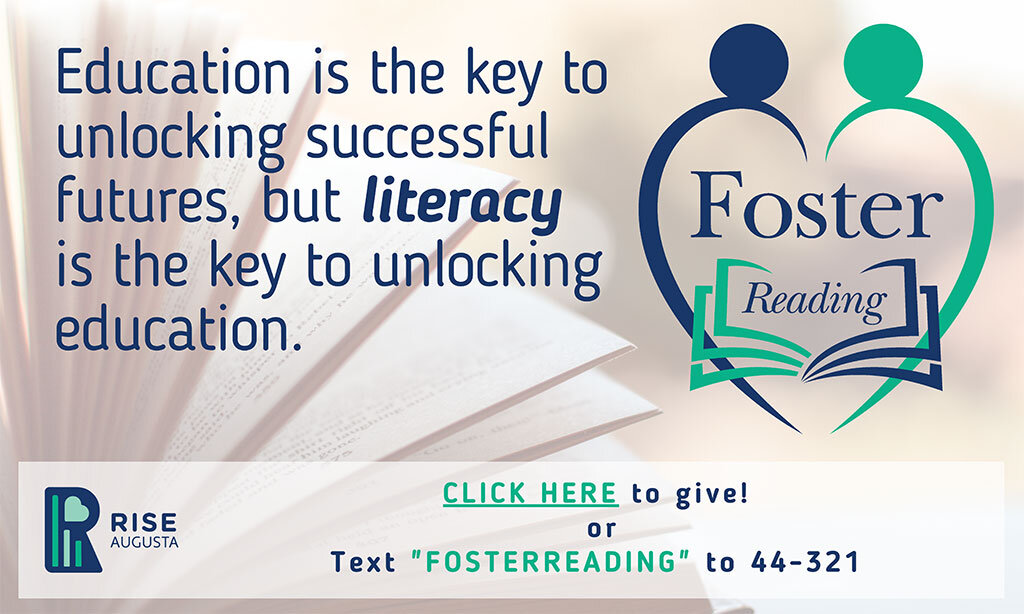11.9 Million Kids Live in Poverty in the United States
36% of Richmond County Children Live in Poverty
RISE Augusta believes in the potential of all children to rise above adversity, stay in school, and achieve in life.
2026 Golf FORE Kids Event
2026 Golf FORE Kids Event
Tutoring at the HUB!
Sign Up for the 2025-2026 School Year
Read with Me
Watch this Video with Special Guest Reader!
Watch Even More Read With Me Videos Online

How Poverty Affects Students:
1 in 4 children in poverty never learn how to read.
It is likely that poor children will enter school six months behind their peers.
Multiple stressors in the home environment can take a toll on student behavior. In fact, one in five children growing up in poverty has elevated risk for socioemotional difficulties like impulsivity, difficulty in focusing, aggressiveness, passiveness, hopelessness, and disruptive behavior in the classroom.
Poor students lose 30 percent more days from school than their nonpoor peers.
School performance is further affected by vision, hearing, and dental problems. Poor children have twice the normal rate of severe vision impairment, have more hearing problems than their non-poor peers, and three times as likely to have untreated cavities.
Twice as many poor children will have short attention spans, three times as many will speak in a way that is not understandable to strangers
Children raised in such stressful environments find it harder to pay attention and follow directions in school. As a matter of fact, in her book, Changing the Odds for Children at Risk, Susan Neuman, former U.S. assistant secretary of education, wrote: “Twice as many poor children will have short attention spans, three times as many will speak in a way that is not understandable to strangers—stuttering or stammering—and almost five times as many will be in poor health. Only a small fraction of poor preschoolers will display any signs of emerging literacy and the small motor skills necessary to begin writing.”
We believe:
That the uniqueness and diversity of every child needs to be celebrated.
That every child wants to succeed, but sometimes needs help to overcome obstacles to that success.
Education is the key to unlocking successful futures, but that Literacy is a critical skill to learning.
All children deserve a safe place to learn and grow.
A child’s education is most successful when communities, families, and schools work together in a climate of mutual support and respect.
Be part of breaking the cycle of poverty!
Read With Me
To learn more about the campaign, click the link below.
Come & Visit Us at the HUB
RISE Augusta’s administrative offices are located in the HUB for Community Innovation located in the heart of the historic Harrisburg community at 631 Chafee Ave, Augusta. RISE Augusta is joined by other Community Partners – the “Harris Literacy Center,” Augusta Locally Grown, Harrisburg Family Health, Family Y, and the Boys and Girls Club of the CSRA.
“We want to encourage innovative, collaborative approaches for revitalizing Harrisburg and Laney Walker. By bringing existing resources and nonprofits together in one location, we can start to bolster equitable access to all the essential elements of a thriving community.”
Shell Berry, CEO of the Community Foundation of the CSRA












